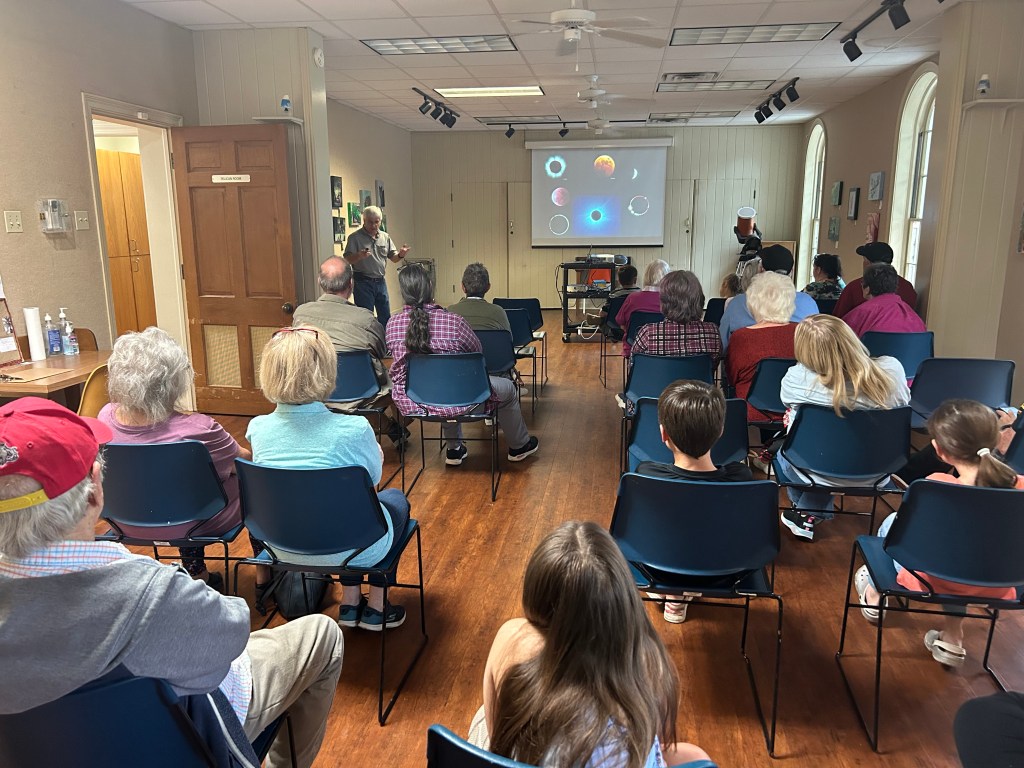Astronomer answers questions about upcoming eclipse
Published 9:30 am Thursday, April 4, 2024

- People of all ages attended the library event to ask questions regarding the eclipse.
People all over the country have a lot of questions regarding Monday’s solar eclipse, and local astronomer Dave Hostetter was available to answer all the questions Iberia Parish stargazers had Tuesday afternoon.
Hostetter, who has worked at the Lafayette Science Museum’s planetarium for years, spoke at the Iberia Parish Library’s Main Branch for a special presentation on the solar eclipse that will reach the entire continental United States next week.
However, Hostetter made sure the audience didn’t give their hopes up. Although most Americans will be able to see a partial solar eclipse, only those following the narrow path of the total eclipse line will be able to see a completely eclipsed sun.
“With a total solar eclipse, the moon looks big enough to cover up the entire disc of the sun and what you see around the moon’s silhouette is the corona of the sun,” he said. “It’s absolutely spectacular and you should see one if you ever get the chance.
“Here in Acadiana, we’re going to see a partial eclipse,” he added. “We are not in the path of totality, it will be something like 68% of the sun is going to be blocked.”
For those who may have a friend or family member living in the path of totality, Hostetter said it might be a good time to pay a visit for the total eclipse. Those wanting to rent a hotel will likely have harder luck since most have already been booked for April 8.
The time that everyone sees the eclipse will vary depending on where they live along the path of the eclipse, but Hostetter said we in Acadiana will be seeing the partial eclipse around noon.
Although south Louisiana isn’t in the path of totality, Hostetter mentioned that our area does lie along the path of totality for a future eclipse.
“We are going to have one on May 8, 2078,” he said. “So if you’re watching it in 2078, remember you heard it here first.”
More importantly, Hostetter made sure to emphasize the safety aspects for the day of the eclipse.
“You should never look directly at an eclipse,” he said. “Looking at an eclipse is no less dangerous than looking at the sun on any other day.”
In the same way that a magnifying glass uses the suns light to burn a piece of paper, Hostetter said looking at the sun can use the lens of the front of your eye to give a deep retinal burn in the back of the eye.
“You don’t want that to happen,” he said.
There are, however, a number of ways in which those interested can view the eclipse in a safe way. Hostetter recommended his website, www.acadianasky.com, for more information.





